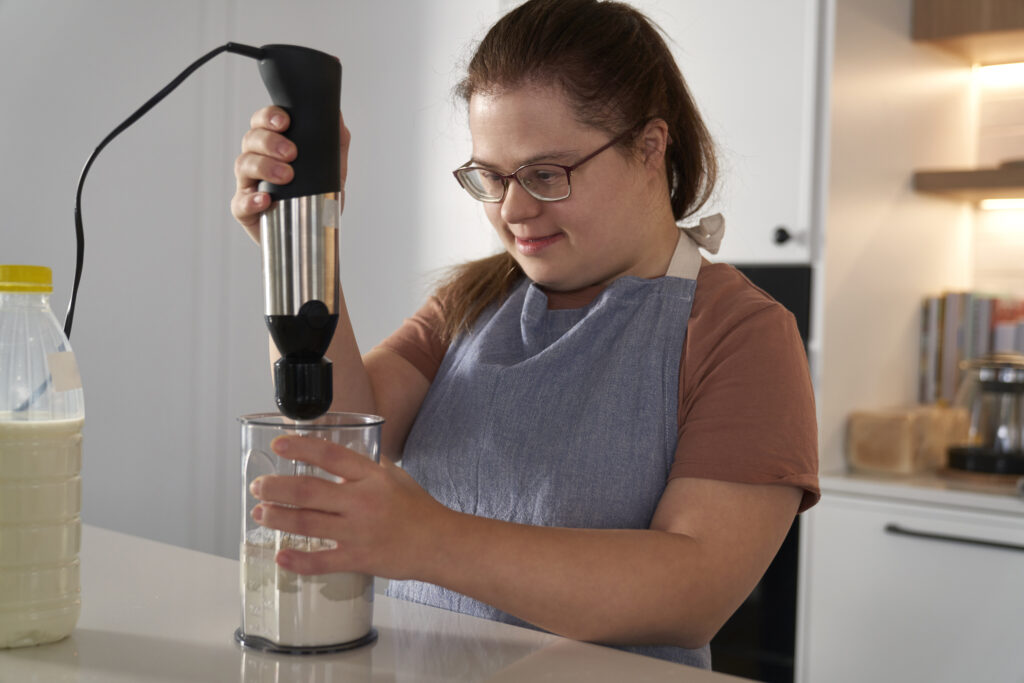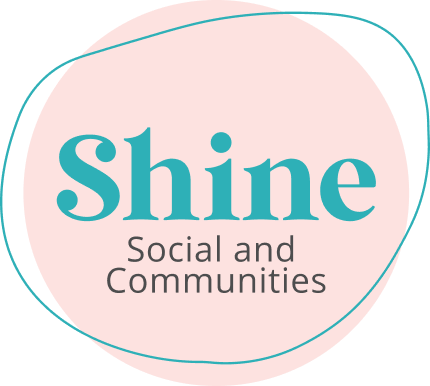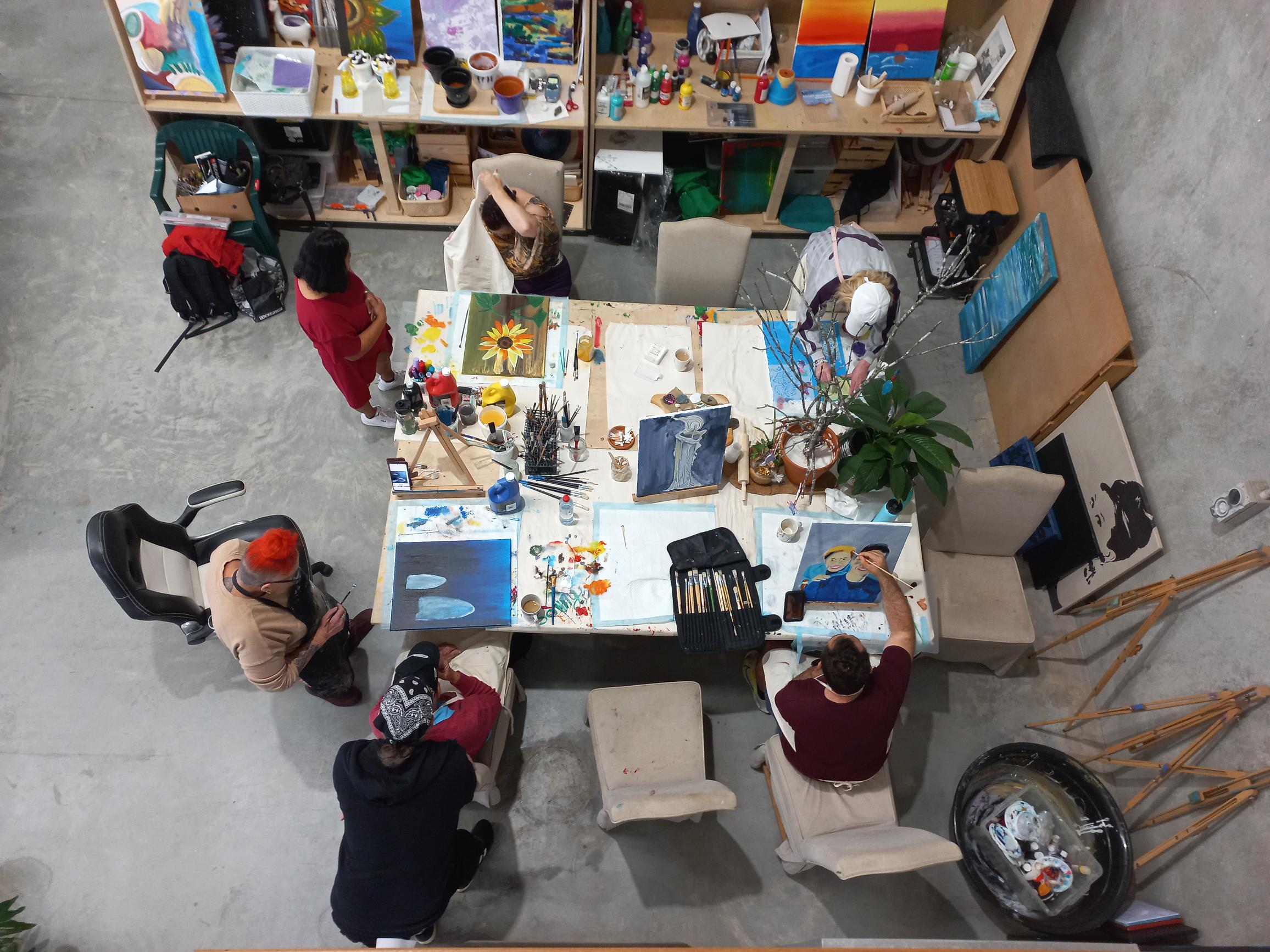Navigating everyday living can be challenging for anyone, but for some individuals, the journey towards independence can be a little different. In society, independence is often associated with self-sufficiency, autonomy, and the ability to make choices freely. However, for some people, achieving independence may require overcoming physical, social, and systemic obstacles – but that doesn’t mean it’s not possible!
In this post, we explore what independence truly means in this context, examining the various challenges and barriers that individuals may encounter along the way and tips to help empower and promote a life of independence and autonomy.

What Does Independence Mean?
For those with physical and mental challenges, independence typically means having more freedom and support to shape their lives according to their personal preferences, goals, and aspirations. However, independence means something different for each individual, and includes things like:
- Self-care skills: The ability to independently manage personal care routines, such as grooming, bathing, and dressing, fosters a sense of self-sufficiency and dignity.
- Social and community engagement: Having the opportunity to engage in hobbies, sports, and activities that bring joy and fulfilment, contributing to overall well-being and quality of life.
- Medical and health management: Being empowered to take charge of one’s health, including managing medications, attending medical appointments, and implementing healthy lifestyle choices.
- Daily Activities: Having the skills and resources to carry out everyday tasks independently, such as cooking meals, maintaining hygiene, and keeping living spaces clean and organised.
- Use of Assistive Devices and Technology: Access to assistive technologies such as communication aids and mobility devices that enhance independence in various activities.
- Travelling: Having the ability to navigate transportation systems and travel independently, whether it’s commuting to work, running errands, or exploring new places.
- Work and Job: Pursuing meaningful employment opportunities and having the necessary support and accommodations to thrive in the workplace.
Read More: Bridging The Gap To Equal Opportunity: What Is Supported Employment Services?

Ways To Empower & Promote Independence
Fostering independence is just as important as care and support. Not only does it empower individuals to lead more fulfilling lives, but it also promotes self-confidence, autonomy, and a sense of dignity.
For Carers
- Support, Not Control: In many cases, it is better to focus on providing support rather than taking control. Encourage autonomy and decision-making while offering assistance when needed.
- Encourage Participation & Decision Making: Involve participants in decision-making processes regarding their care, activities, and goals. This allows them to express their preferences and choices, giving them a sense of ownership and empowerment.
- Help Set Goals: Collaborate with participants to set realistic and achievable goals that align with their goals and capabilities. Some goals may be long-term, so it is best to break these down into smaller, manageable steps.
- Lead With Positivity: When it comes to care, it is important to foster a positive and encouraging environment that emphasises strengths, abilities, and potential rather than limitations. Leading with positivity makes participants more likely to feel motivated, empowered, and confident in their abilities to overcome challenges.
- Learn & Adapt: As participants change, so do their needs and goals. It is important to adapt your approaches and strategies to meet their evolving requirements.
- Celebrate All Victories: No win is too small! Acknowledging and celebrating every achievement is essential in fostering a positive and encouraging environment.
For Individuals & Participants
- Seek Support: Don’t hesitate to reach out for support from family, friends, caregivers, or professionals when needed. Building a strong support network can provide the encouragement and support you need (and deserve!)
- Set Goals: Setting personal goals can help you take steps towards achieving independence. Whether it is mastering a new skill, increasing daily activity levels, or getting a job, clear and achievable goals provides direction and motivation. Break down larger objectives into smaller, manageable tasks to help track your progress along the way.
- Start Slow: Promoting independence is a journey that requires patience and persistence. Tackling small challenges first will help build confidence and develop the skills for long-term independence and success.
- Be Social: People with physical and mental challenges can be lonely and isolating. One of the key ways to combat this and promote independence is by engaging in activities you enjoy and building connections with others along the way. Participating in community events, joining clubs or support groups, and connecting with peers who share similar interests can foster a sense of belonging, provide emotional support, and enhance overall well-being.
- Embrace Learning: Independence is about learning. In addition to building new skills, continuous learning can enhance your abilities, boost your confidence, and open up new opportunities to take greater control of your life.
- Stay Healthy & Active: Staying active is essential for maintaining physical and mental well-being. Staying active and healthy can not only boost your energy levels and improve your mood, but also enhances your ability to perform daily tasks independently.
- Find A Career: One of the best ways to promote independence outside of the home is to get a job. Supported employment opportunities that match your skills and passions provide financial stability, a sense of purpose, and opportunities for personal growth and social interaction.
Read More: Tips For Setting Your NDIS Goals

NDIS And Promoting Independence
The NDIS (National Disability Insurance Scheme) offers a range of support services designed to nurture and foster independence and skill-building among participants with diverse needs.
- Personalised Support Plans: The NDIS sees that every individual is unique and emphasises the importance of creating personalised support plans. This ensures that individuals receive the specific support they need to live more independently, whether it is through physical therapies, mobility aids, or educational opportunities.
- Funding Flexibility: NDIS provides funding that allows participants to decide how best to allocate their resources. This means individuals can choose the services, therapies, and supports that best meet their needs.
- Skill-Building: Many support services under the NDIS are designed to teach participants vital life skills, from managing their finances to navigating public transportation or even cooking for themselves. These programs, like Supported Independent Living, are designed to equip individuals with the tools they need to handle everyday tasks as independently as possible.
- Social Integration & Community Involvement: The NDIS also offers programs aimed at promoting social integration and community involvement. This helps participants build social connections, engage in community activities, build supportive networks, and lead more inclusive lives.
Ultimately, the foundation of NDIS support coordination and the NDIS’s approach to independence is the power of choice. Participants can choose their providers, set their goals, and decide the trajectory of their plans. This autonomy is empowering, giving individuals control over their lives and futures.
Read More: A Guide To Choosing A Supported Independent Living Provider

Giving The Power Of Choice
From understanding the concept of independence to how to promote autonomy, it is clear that independence is a personal journey. It not only includes physical abilities but also mental, emotional, and social factors that all play a role in how we navigate the world around us.
From setting goals to fostering social connections, every step along this journey contributes to our independence. Shine Social and Communities is an NDIS support service provider that believes everyone should have the opportunity to live a happy, healthy and fulfilling life. That’s why we offer a range of services that empower individuals to achieve their goals and lead meaningful lives. Get in touch today to learn more.




